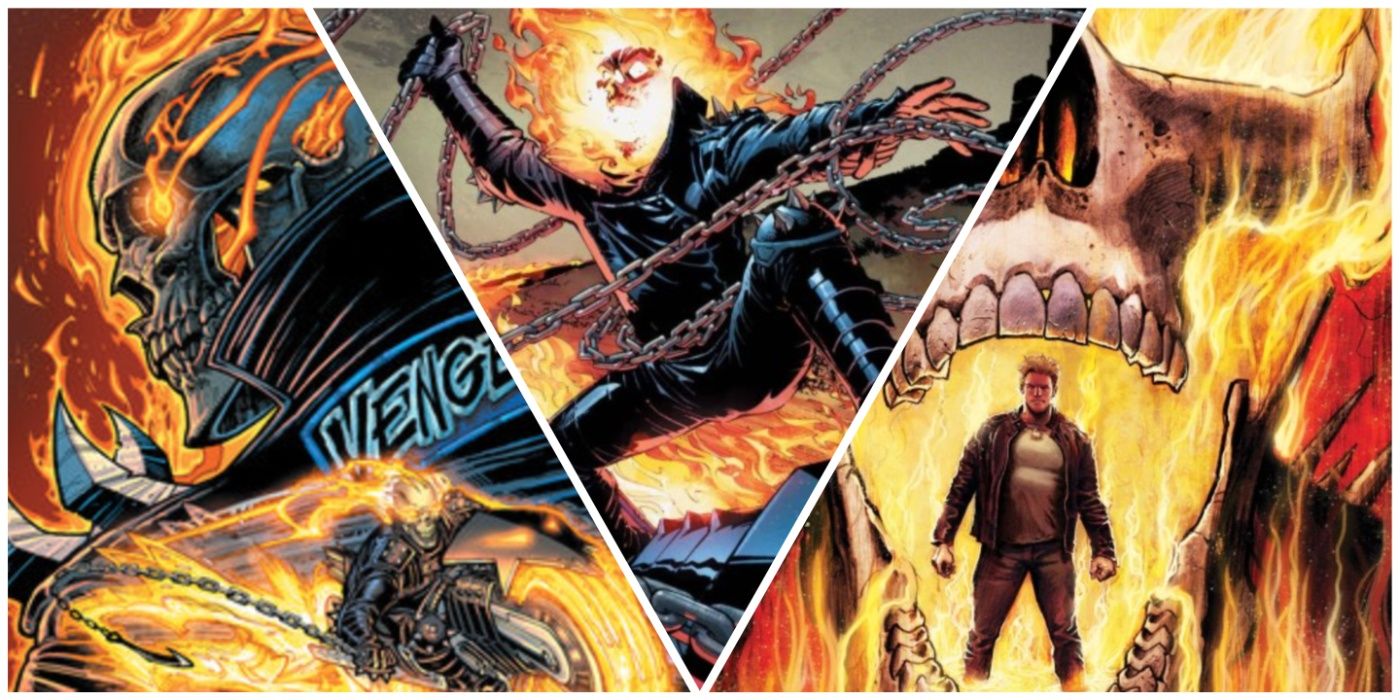Penned by longtime Wolverine regular Benjamin Percy, with art by Danny Kim, colors by Bryan Valenza and letters by VC’s Travis Lanham, Ghost Rider: Final Vengeance #1 kicks off the latest and most precarious arc for the character and the franchise, the first issue of a three-part series. Long ago, Johnny Blaze made a literal deal with the devil — Mephisto — to save someone he loved. Since then, Johnny has merged with the spirit, Zarathos, and donned the moniker of the Ghost Rider, the Spirit of Vengeance. This dangerous alter ego activates whenever innocent blood is shed, as a way to dole penance and punishment.While his powers may have been demonic, Johnny Blaze was a force for good. He uses Mephisto’s terrifying abilities to dispense justice — whether Mephisto likes it or not. However, in Ghost Rider: Final Vengeance #1, Johnny Blaze — and the Ghost Rider — are nowhere to be found. Mephisto has stripped Zarathos away from him. And now, Mephisto is finally free to unleash hell on Earth through a new host.The story is told via frame narrative, from Zarathos’s point of view, who adopts a cool and oddly clinical omniscient first-person voice. These poetic musings of a God on the topic of human suffering are as matter-of-fact in nature as one would be about the weather or economy, yet tinged with a touch of tragedy and resignation. Percy’s use of frame narration lends an almost “Southern Gothic” quality to Ghost Rider: Final Vengeance #1, like a twisted murder ballad from the early 20th century. The chapter is dissonant when it comes to contemporary images of pain, horror, and drama — both mundane and outrageous. It’s truly unsettling to see random people’s faces burst into flames, only to then extinguish back to normal, as if nothing happened. More unsettling is when Zarathos, reluctantly under orders by Mephisto, bestows power on someone — albeit briefly — who is experiencing genuine anger and vengeance. Violence ensues, all while Zarathos calmly dictates his distant, epic poem like he’s a sad, hellish Homer who is reciting the Odyssey.
Penned by longtime Wolverine regular Benjamin Percy, with art by Danny Kim, colors by Bryan Valenza and letters by VC’s Travis Lanham, Ghost Rider: Final Vengeance #1 kicks off the latest and most precarious arc for the character and the franchise, the first issue of a three-part series. Long ago, Johnny Blaze made a literal deal with the devil — Mephisto — to save someone he loved. Since then, Johnny has merged with the spirit, Zarathos, and donned the moniker of the Ghost Rider, the Spirit of Vengeance. This dangerous alter ego activates whenever innocent blood is shed, as a way to dole penance and punishment.
While his powers may have been demonic, Johnny Blaze was a force for good. He uses Mephisto’s terrifying abilities to dispense justice — whether Mephisto likes it or not. However, in Ghost Rider: Final Vengeance #1, Johnny Blaze — and the Ghost Rider — are nowhere to be found. Mephisto has stripped Zarathos away from him. And now, Mephisto is finally free to unleash hell on Earth through a new host.
The story is told via frame narrative, from Zarathos’s point of view, who adopts a cool and oddly clinical omniscient first-person voice. These poetic musings of a God on the topic of human suffering are as matter-of-fact in nature as one would be about the weather or economy, yet tinged with a touch of tragedy and resignation. Percy’s use of frame narration lends an almost “Southern Gothic” quality to Ghost Rider: Final Vengeance #1, like a twisted murder ballad from the early 20th century. The chapter is dissonant when it comes to contemporary images of pain, horror, and drama — both mundane and outrageous. It’s truly unsettling to see random people’s faces burst into flames, only to then extinguish back to normal, as if nothing happened. More unsettling is when Zarathos, reluctantly under orders by Mephisto, bestows power on someone — albeit briefly — who is experiencing genuine anger and vengeance. Violence ensues, all while Zarathos calmly dictates his distant, epic poem like he’s a sad, hellish Homer who is reciting the Odyssey.
#REVIEW #Ghost #Rider #Final #Vengeance #Montage #Beautiful #Hellfire #Madness
Note:- (Not all news on the site expresses the point of view of the site, but we transmit this news automatically and translate it through programmatic technology on the site and not from a human editor. The content is auto-generated from a syndicated feed.))



